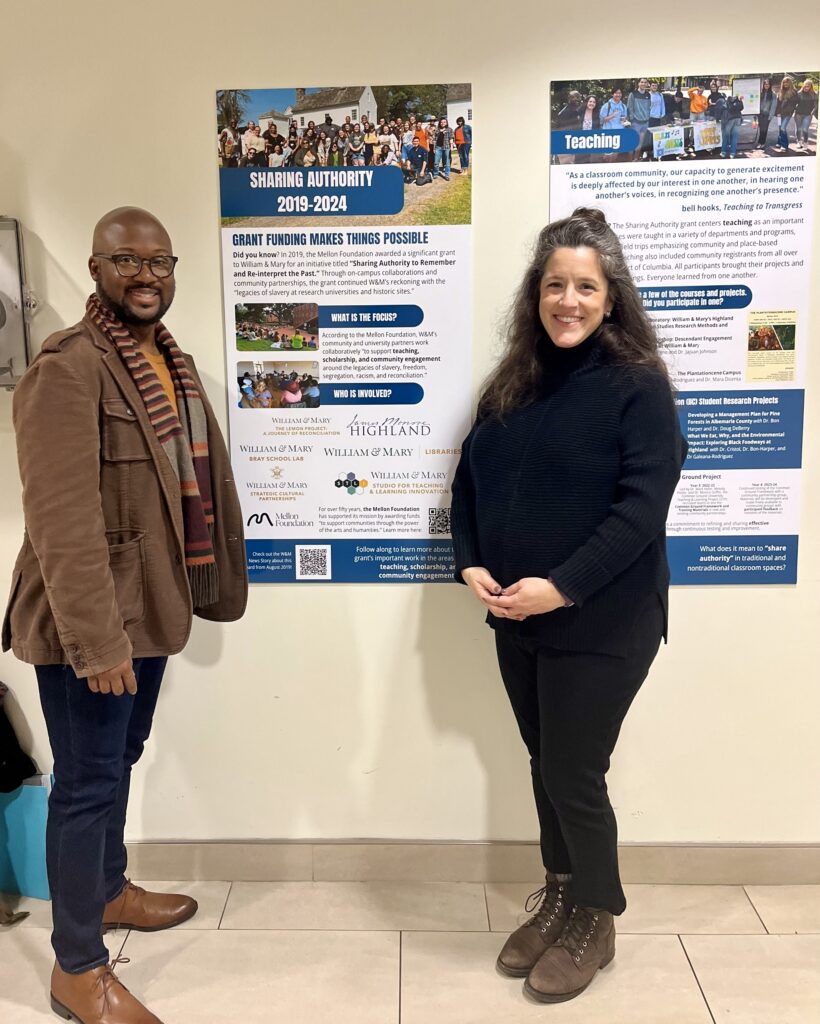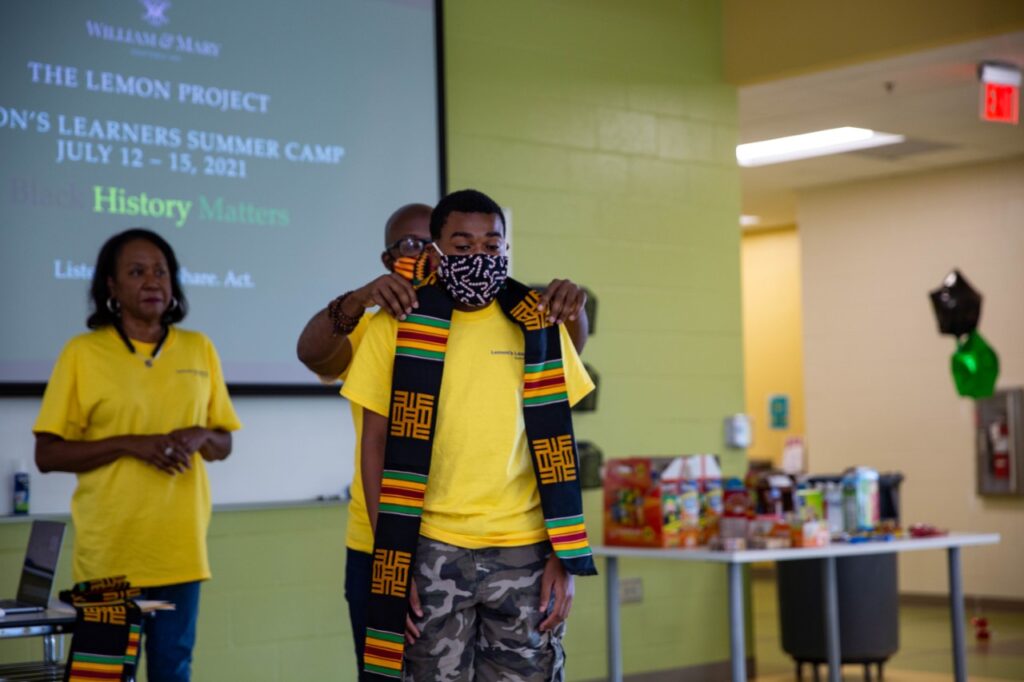By Bennett White, Lemon Project History Graduate Apprentice, 2024-2025
The account books of Samuel F. Bright are perched on one of the many shelves lining William and Mary’s Special Collections storage room. Bright, a typical antebellum planter, painstakingly recorded the financial affairs of Porto Bello, his sprawling plantation overlooking Queen’s Creek near Williamsburg, Virginia. Spanning thirty-seven years and two volumes, the ledgers contain lists of farming equipment; memoranda on crop rotation; account balances with local shopkeepers; transactions with Norfolk and Richmond businessmen; and the seasonal yields of oystering, timber, castor beans, wheat, and corn. Yet something sinister lays interspersed between the quotidian records of agrarian life: inventories of enslaved men, women, and children, as well as the prices at which Bright valued them. De-commodifying the enslaved population of Porto Bello through reconstructing their familial relationships is my primary goal with the Lemon Project this year.
Several questions guide my ongoing research. Why, and how, did the enslaved population of Porto Bello fluctuate between 1824 and 1861? Who were the people held in bondage on Bright’s estate? What were their names, ages, and gender? Who was related to whom, and how might recovering intra-plantation familial ties deepen our understanding of the experiences of enslaved individuals? And lastly, how does answering these questions benefit descendant communities? In his award-winning book Freedom Seekers: Escaping from Slavery in Restoration London, historian Simon P. Newman found that empirical studies of slavery risk perpetuating the dehumanization of enslaved people by reducing their complex lives to mere data points.[1] With Newman’s warning in mind, the above questions ensure that the information I gather about those bound to Porto Bello emphasizes their humanity through rediscovering facets of their identities.

Bright’s inventories provide only brief glimpses into the day-to-day reality of enslaved people, but they do offer a partial view of their diets, their material comforts (or lack thereof), and their workaday lives. Bright dutifully recorded every hog, lamb, and cow butchered to feed his enslaved labor force. Frequent purchases of rice and molasses further supplemented their meals, suggesting their diets were high in protein and carbs but lacked nutritious fruits and vegetables. Catalogs reveal that Porto Bello’s laborers were sparsely clothed; expenditures from 1845 show that Bright purchased one summer and winter wardrobe per person, consisting of only two jackets, shirts, trousers, and pairs of shoes for the entire year.[2] Work was primarily agricultural. For example, bondsmen, such as Armistead, Billy, Randal, and Sawney, spent part of 1832 manuring 26 acres of farmland, including 13 acres located along “the lane and down the partition fence to [the] gate by the large oak tree.”[3] Men and women had varying occupations depending on the year or season; Bright alternated between planting corn, wheat, and castor beans. Porto Bello’s proximity to water and forested land allowed him to harvest oysters, cut timber, and maintain a cherry orchard to increase his annual income.

In addition to manuring castor bean fields alongside the men, women had the added responsibility of childbirth and rearing. That same year, Amy, aged 29, gave birth to her seventh child, “a girl named Anne,” on April 2. Although Bright only recorded names and birthdates, we can gain insight into the mothers’ experiences on Porto Bello through a list of enslaved families that he compiled between 1835 and 1841. Bright claimed Amy was aged 32 in 1835, so she was born around 1803 and gave birth to her first child, Tom, in September 1820. So, she was about 17 years old when she had her first child and was 16 when she first became pregnant. Between 1820 and 1841, she gave birth every one to two years, ending up with seven boys and six girls. Unfortunately, there is no record of who the father (or fathers) might have been, or whether her pregnancies were consensual. Nonetheless, the biographical information contained in Bright’s account will allow me to cross-reference my findings with other archival sources to construct a more holistic genealogy of Porto Bello’s enslaved families.[4]
Moving forward, I plan to use the raw data I collected by consulting local baptismal documents, burial records, and online databases, such as Ancestry.com, to assist local descendant communities in building a more complete and accessible genealogical record of enslaved people who lived and worked in the Williamsburg area. While plans for this project are tentative, inserting the perspective of Porto Bello’s enslaved families into the historical record is at its center.
[1] Simon P. Newman, Freedom Seekers: Escaping from Slavery in Restoration London (University of London Press, 2022), 4-5.
[2] Samuel F. Bright Account Books, vol. 2, Special Collections Research Center, Swem Library, William and Mary, 56.
[3] Samuel F. Bright Account Books, vol. 2, 31.
[4] Samuel F. Bright Account Books, vol. 2, 157.
Comments closed




















